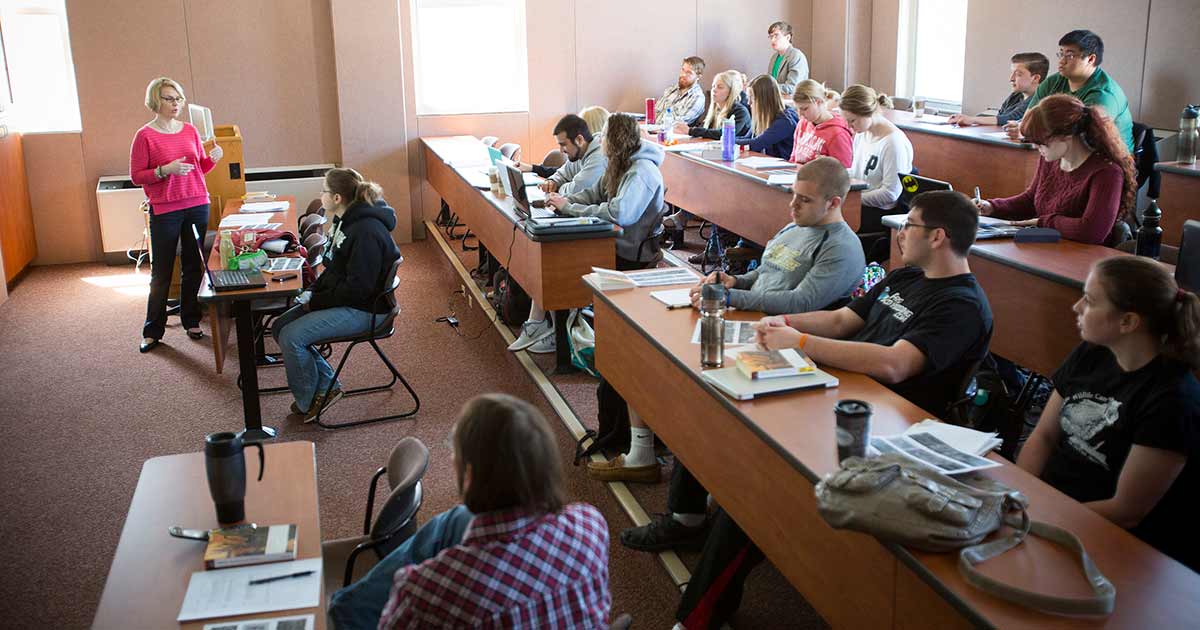
The Philosophy Program is an integral part of Juniata’s liberal arts curriculum. The
essential function of a genuine liberal arts education is to liberate the minds of
students by teaching them how to conceptually identify and critically examine their
fundamental assumptions, ideologies, value systems, and modes of thinking behind our
society, cultures, and human lives.
The Philosophy Department seeks to engage students in rational and critical thinking
about their total life experience: logic, ethics, aesthetics, methods of knowing,
and levels of being and, accordingly, to prepare students to lead examined lives.
Especially, given the enormous emphasis on science and career education at Juniata,
it is essential to identify the crucial ontological, epistemological, and ethical
issues at the very heart of these career ambitions.

The Philosophy Program is an integral part of Juniata’s liberal arts curriculum. The
essential function of a genuine liberal arts education is to liberate the minds of
students by teaching them how to conceptually identify and critically examine their
fundamental assumptions, ideologies, value systems, and modes of thinking behind our
society, cultures, and human lives.
The Philosophy Department seeks to engage students in rational and critical thinking
about their total life experience: logic, ethics, aesthetics, methods of knowing,
and levels of being and, accordingly, to prepare students to lead examined lives.
Especially, given the enormous emphasis on science and career education at Juniata,
it is essential to identify the crucial ontological, epistemological, and ethical
issues at the very heart of these career ambitions.

The Philosophy Program is an integral part of Juniata’s liberal arts curriculum. The
essential function of a genuine liberal arts education is to liberate the minds of
students by teaching them how to conceptually identify and critically examine their
fundamental assumptions, ideologies, value systems, and modes of thinking behind our
society, cultures, and human lives.
The Philosophy Department seeks to engage students in rational and critical thinking
about their total life experience: logic, ethics, aesthetics, methods of knowing,
and levels of being and, accordingly, to prepare students to lead examined lives.
Especially, given the enormous emphasis on science and career education at Juniata,
it is essential to identify the crucial ontological, epistemological, and ethical
issues at the very heart of these career ambitions.

Individualize Your Philosophy POE

Individualize Your Philosophy POE

Individualize Your Philosophy POE

Individualize Your Philosophy POE
Research

Research

Research

Research

Study Abroad
Study abroad at three partner universities with exceptional philosophy programs: the
University of Leeds, England; the University of Otago, New Zealand; or the University
of Newcastle, Australia. Use these experiences to design your own international POE
in philosophy. Learn More Here.
 skip to content
skip to content





